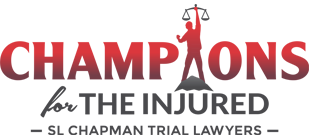Living With A Brain Injury
Posted on August 24, 2023A brain injury can significantly alter a person’s life, affecting not only their physical abilities but also their cognitive and emotional well-being. For those who have sustained a brain injury, understanding the challenges and adjustments required for daily living is crucial.
Cognitive And Memory Challenges
Brain injuries often result in cognitive impairments, affecting memory, attention, and problem-solving abilities. Many individuals with brain injuries may struggle to remember recent events, faces, or tasks. Coping with these challenges may involve using memory aids, such as calendars or smartphone apps, to stay organized and keep track of important information.
Emotional And Behavioral Changes
Brain injuries can lead to emotional and behavioral changes, including mood swings, irritability, and even depression. These changes can be distressing for both the individual and their loved ones. In some cases, therapy or counseling may be necessary to address emotional issues and provide effective coping strategies.
Physical Limitations
Physical impairments can also result from a brain injury. Mobility, balance, and coordination may be affected. Physical therapy and rehabilitation can help individuals regain strength and relearn basic motor skills.
Adaptations To Daily Living
Living with a brain injury often necessitates adaptations to daily routines and environments. These adaptations may include making homes safer, using assistive devices, and relying on the support of caregivers or family members. Adjusting to these changes can be challenging but is crucial for maintaining independence.
Support Systems
For individuals with brain injuries, building a strong support system is essential. This support may come from family, friends, support groups, or therapists. Having people who understand the challenges and provide emotional support can make a significant difference in one’s quality of life.
Legal Considerations
In cases where brain injuries result from accidents caused by the negligence of others, legal considerations may arise. Pursuing compensation for medical expenses, rehabilitation, and other damages can help individuals access the necessary resources to enhance their quality of life.
Rehabilitation And Recovery
Rehabilitation is a critical aspect of living with a brain injury. Rehabilitation programs may include physical therapy, occupational therapy, speech therapy, and cognitive therapy. These therapies aim to help individuals regain independence and improve their quality of life.
Raising Awareness
Living with a brain injury often involves raising awareness about the condition. Many individuals with brain injuries become advocates, sharing their experiences and promoting understanding within their communities. This can help reduce stigma and improve access to support and resources.
Living with a brain injury is a journey that involves numerous challenges, adjustments, and adaptations. It’s crucial for individuals with brain injuries to understand the impact of their condition, seek the support they need, and explore legal options if the injury resulted from someone else’s negligence. With the right support and resources, individuals can enhance their quality of life and work towards a fulfilling and meaningful future.
Seek Legal Representation
If you or your loved one has suffered a brain injury due to negligence, it’s crucial to seek legal representation. A skilled Scottsdale, AZ brain injury lawyer from SL Chapman Trial Lawyers can help you pursue a personal injury claim to seek compensation for medical bills, lost wages, and pain and suffering. Don’t hesitate to consult with a legal professional who specializes in brain injury cases to protect your rights and obtain the justice you deserve.


